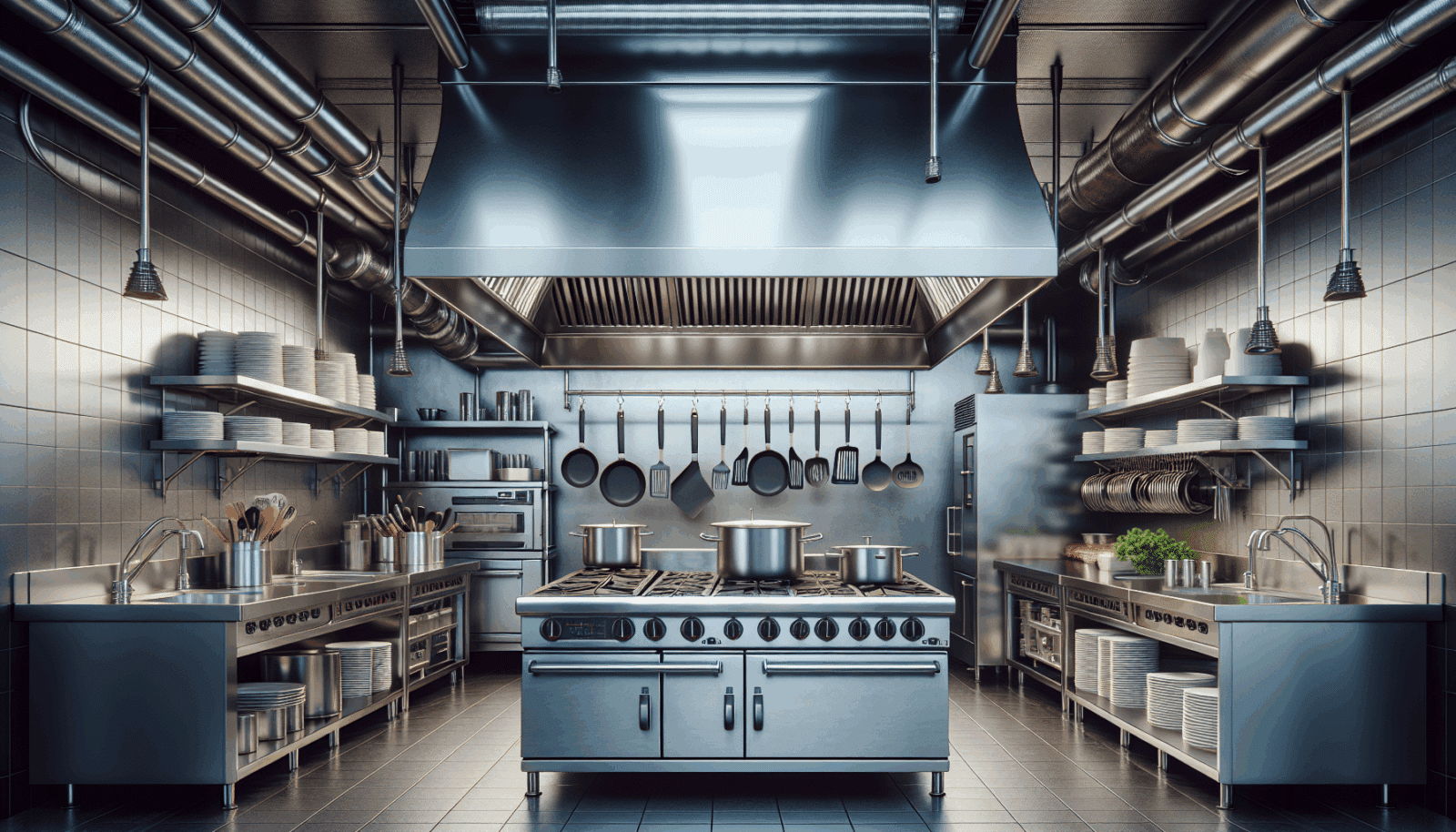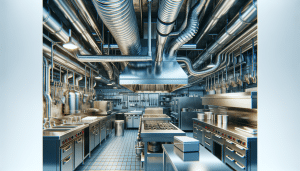Utah Hood Cleaning specializes in ensuring your kitchen remains safe, clean, and compliant with local health regulations. Many homeowners are unsure how often they should invest in deep Kitchen Hood Cleaning Services. This article is geared towards homeowners who want to keep their kitchens in tip-top shape while avoiding potential hazards. Read on to discover what you need to know about deep kitchen hood cleaning.
Understanding Kitchen Hood Cleaning
When it comes to maintaining a clean and safe kitchen, the kitchen hood plays a pivotal role. It captures Grease, smoke, and other airborne contaminants. Without proper maintenance, these contaminants can build up, causing a host of problems. Hence, knowing how often to clean your kitchen hood is crucial.
Regular kitchen hood cleaning helps in removing grease, which can be a significant fire hazard. Additionally, it ensures that your kitchen environment stays healthier for you and your family. So, let’s dive into how frequently you should schedule these crucial cleanings.
Why Deep Cleaning is Necessary
Deep kitchen hood cleaning goes beyond what regular cleaning can achieve. While surface cleaning can remove visible dirt, deep cleaning targets hidden and hard-to-reach areas. This ensures that no grease or grime is left behind.
Moreover, deep cleaning significantly prolongs the lifespan of your kitchen hood. Ignoring this essential maintenance can lead to costly repairs or replacements down the line. Therefore, investing in deep cleaning services is both a safety measure and a cost-saving strategy.
Factors Affecting Cleaning Frequency
Several factors influence how often you should clean your kitchen hood. The first element to consider is your cooking habits. If you cook frequently, the buildup of grease and grime will be quicker compared to someone who cooks occasionally.
The type of cooking you do also plays a role. For example, grilling and frying produce more grease than boiling or steaming. Additionally, the size and power of your kitchen hood can affect its cleaning needs. Smaller or less powerful hoods may require more frequent cleaning.
Recommended Cleaning Schedule
While general guidelines exist, the best cleaning schedule for your kitchen hood will depend on your specific situation. Typically, a deep cleaning every three to six months is recommended for most households. However, if you cook heavily, you might need to clean more frequently.
For lighter cooks, an annual deep cleaning may suffice. Keeping a regular schedule helps ensure that your kitchen hood continually performs optimally. Always refer to your kitchen hood’s manufacturer guidelines for more specific recommendations.
Signs You Need a Cleaning
Sometimes, your kitchen hood will give you clear signs that it needs cleaning. One obvious sign is a noticeable decrease in ventilation performance. If the hood is not capturing smoke and steam effectively, it’s time for a cleaning.
Another sign to watch for is unusual odors coming from the hood. These odors are usually grease that has started to spoil. Lastly, visible grease on the hood or walls around it is a clear indicator that you need to schedule a deep cleaning service.
DIY vs. Professional Cleaning
Many homeowners wonder if they can handle kitchen hood cleaning themselves. While regular surface cleaning can be a DIY task, deep cleaning requires specialized skills and equipment. Professionals ensure that every component is thoroughly cleaned.
Attempting a deep cleaning on your own can be risky and time-consuming. Professional services offer the expertise and efficiency that DIY efforts lack. So, although hiring experts might come at a cost, it’s an investment worth making for the safety and functionality of your kitchen.
Benefits of Hiring Professionals
Hiring professional cleaning services brings numerous benefits. Firstly, professionals use specialized equipment and eco-friendly cleaning agents that are more effective than household products. They can clean areas that are typically hard to reach.
Secondly, professional cleaners are trained to spot potential issues that you might miss. They can advise you on necessary repairs or replacement parts. More importantly, hiring professionals saves you time and effort, allowing you to focus on other important tasks.
What to Expect During a Professional Cleaning
During a professional kitchen hood cleaning, experts will follow a comprehensive process. They’ll start by disassembling the components and soaking them in cleaning solutions. Then, they will scrub and degrease each part meticulously.
Next, they will clean the ductwork and filters to ensure that every part is free of contaminants. Finally, the professionals will reassemble the hood and run a test to ensure it works perfectly. This thorough approach guarantees that your kitchen hood is as good as new.
Maintenance Tips Between Deep Cleanings
To maintain a clean kitchen hood between deep cleanings, consider implementing some simple habits. Start by regularly wiping down the exterior of the hood to prevent grease buildup. Cleaning the filters monthly can also extend the time between deep cleanings.
Moreover, avoid cooking on high flames without using the Exhaust system, as this can escalate grease accumulation. Keeping the kitchen ventilated can also help reduce airborne contaminants that may settle on your hood.
- Regular Surface Cleaning: Wipe down the kitchen hood exterior after each cooking session to prevent grease buildup.
- Monthly Filter Cleaning: Remove and clean filters with warm soapy water once a month to maintain airflow efficiency.
- Avoid High Flames: Use medium to low heat settings when cooking to minimize grease splatter.
- Ventilate Your Kitchen: Open windows or use additional ventilation to help clear airborne particles.
- Inspect Regularly: Conduct monthly inspections for any signs of grease buildup or reduced performance.
Conclusion
Scheduling regular deep kitchen hood cleaning services is crucial for both safety and efficiency. We at Utah Hood Cleaning are here to help ensure that your kitchen remains a safe and pleasant environment. For more information or to schedule a service, please Contact Us by phone # 801-853-8155 or Request a Free Quote.




